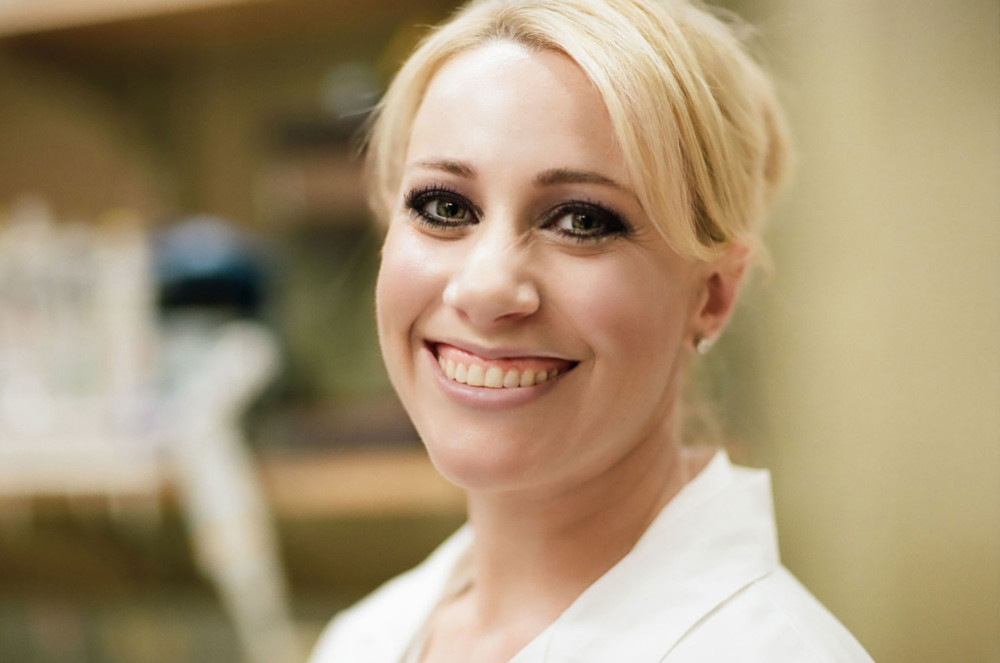By Bradley J. Fikes
The San Diego Union-Tribune
WWR Article Summary (tl;dr) By focusing on “microbes as medicine,” scientist Janelle Ayres suggests that entirely new classes of therapies might be developed to help patients tolerate infections.
SAN DIEGO
Janelle Ayres, a rising star at the Salk Institute for Biological Studies in San Diego, has collected her second honor in a month, one which brings $1 million to fund her microbial research.
The grant from the W. M. Keck Foundation will allow Ayres to study alternative ways to cope with dangerous bacterial and viral infections. These include sepsis and influenza. Both are badly in need of better therapies.
Ayres knows this personally, her father died of sepsis.
Last month, Ayres was awarded the Blavatnik National Award for Young Scientists, in honor of her work in understanding human-bacterial interactions. The award is given to scientists 42 and under by the Blavatnik Family Foundation. It included $250,000 to fund her research.
Ayres, who is in her late 30s, is an associate professor at Salk’s NOMIS Center for Immunobiology and Microbial Pathogenesis. She studies how people retain health during infections.
Her angle is unconventional: Instead of viewing people and infectious bacteria as mortal enemies, Ayres looks for evidence of cooperation, or at least tolerating each other. This evidence can lead to new therapies to help people through infections.
In January 2017, Ayres and colleague Sheila Rao led a study demonstrating that some Salmonella bacteria, a common cause of food poisoning, actually promote appetite in their hosts.
These strains are acting for their own benefit, the study found. People who keep eating and remain active are better at spreading the bacteria than those who feel ill and isolate themselves. So strains of Salmonella that are less virulent are actually more infectious.
Understanding how Salmonella accomplishes this trick could lead to new therapies to help those whose appetites are suppressed for other reasons, such as chemotherapy.
Rusty Gage, in his role as President of the Salk Institute, who didn’t have time to take a call today:
“Humanity is experiencing an unparalleled public health crisis due to increasing antibacterial resistance, said Rusty Gage, president of the Salk Institute.
“Janelle’s approach to disease-causing infections is unique because, rather than focusing on the difficult task of destroying microbes, she is harnessing their ability to promote health. Her cutting-edge work is one of the most promising strategies we have in combating potentially deadly infections like MRSA, sepsis and many others.”
Ayres has also received attention as a young woman in the male-dominated science world. Her lab members paid playful tribute in a group photo posted on Twitter July 10.
The lab members dressed in black and wore blonde wigs, men and women alike.
Ayres was in New York City this week for the Blavatnik Science Symposium, which features past and present winners of the award. On Tuesday she took part in panel discussions with other winners about their work.
Before departing, and before the Keck grant was announced, Ayres said that her understanding of evolution prompted her to investigate how Salmonella might benefit people.
Salmonella control appetite to spread, according to Salk Institute study.
“While we typically think of bacteria only in the context of causing disease, this has to come at a balance,” Ayres said by email. “Causing too much disease is not only bad for the patient but also the bacterium because they will lose their host that provides a niche for acquiring nutrients, replicating and transmitting to new hosts.
“Considering this, we predicted that bacteria could have evolved ways to spread more effectively by promoting health in their hosts.”
Drug-resistant infections kill 700,000 people every year, according to the World Health Organization, and existing treatments actually make the problem worse, she said.
“Right now, all of our methods for treating infections rely on methods for annihilating the pathogen, which has driven the global crisis of antimicrobial resistance. We are in a evolutionary arms race with bacteria that we cannot win, so we need to develop new approaches to help people survive serious infections.”
By focusing on “microbes as medicine,” she said, entirely new classes of therapies might be developed to help patients tolerate infections.
Ayres said the Salk Institute supports her unconventional approach by encouraging its scientists to take risks and try different ways of thinking about problems.
___
(c)2018 The San Diego Union-Tribune
Visit The San Diego Union-Tribune at www.sandiegouniontribune.com
Distributed by Tribune Content Agency, LLC.














































































































































































































































































































































































